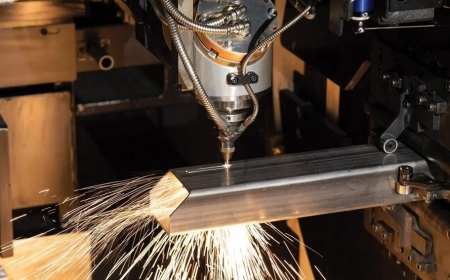Transform Your Smile with Full Mouth Dental Implants: What You Need to Know
Learn how full mouth dental implants restore your smile, boost oral function, and support long-term health with advanced restorative dentistry solutions.
Missing teeth can affect much more than just your appearance. They can impact your ability to eat, speak, and even your overall health. Fortunately, modern restorative dentistry offers a powerful solution: full mouth dental implants. This treatment can completely rebuild your smile and restore oral function. In this article, you'll learn what full mouth dental implants are, how they work, and why they might be the right choice for you.
What Are Full Mouth Dental Implants?
Full mouth dental implants replace all the teeth in the upper jaw, lower jaw, or both. Unlike dentures, these implants are securely anchored in your jawbone. This provides stability similar to natural teeth. The implants support crowns or a full arch of replacement teeth, giving you a natural looking and long lasting smile. These implants are an advanced form of dental restoration. They help restore both function and aesthetics after significant tooth loss. Because they are fixed and stable, they improve chewing ability, speech, and confidence.
How Do Full Mouth Dental Implants Work?
The process involves placing titanium posts into the jawbone to act as artificial tooth roots. Over time, the bone grows around the implants, securing them firmly. This process is called osseointegration. Once the implants are stable, custom made replacement teeth are attached. These replacements look and feel like your natural teeth. The result is a fully functional and attractive smile. Dental restoration procedures like this take time and planning. You will need consultations, X-rays, and sometimes bone grafting if jawbone volume is low. Each case is unique and requires a personalized treatment plan.
Benefits of Full Mouth Dental Implants
Dental implants for the entire mouth offer many advantages over traditional dentures or bridges:
-
Improved Chewing and Speaking: Implants function like natural teeth, allowing you to enjoy all types of food and speak clearly.
-
Long-Lasting Solution: With proper care, implants can last a lifetime, making them cost-effective in the long run.
-
Bone Preservation: Implants stimulate the jawbone, preventing bone loss that occurs with missing teeth.
-
Comfort and Confidence: Unlike dentures, implants won’t slip or cause sore spots. You can smile, laugh, and eat with confidence.
-
Natural Appearance: The prosthetic teeth are designed to look natural and blend with your facial features.
Restoration Dentistry: More Than Just Implants
Dental restoration includes many treatments designed to repair and restore damaged or missing teeth. Dental implants for the full mouth are a significant part of this field, but there are other options too. These include crowns, bridges, dentures, and fillings. Dentists carefully assess your oral health before recommending the best approach. Sometimes, a combination of dental restoration treatments is needed to rebuild your smile fully. Choosing the right treatment depends on factors like bone health, the number of missing teeth, and your overall health.
Who Is a Good Candidate for Dental Implants with a Full Mouth?
Not everyone qualifies for dental implants in their whole mouth immediately. Good candidates typically have:
-
Healthy gums without active infection
-
Sufficient jawbone density or willingness to undergo bone grafting
-
Good overall health and no uncontrolled chronic conditions
-
Commitment to maintaining oral hygiene and regular dental visits
If you have been missing teeth for some time, you might experience bone loss. Dental restoration has advanced solutions like bone grafts to rebuild the jawbone for implant placement. During your consultation, your dentist will evaluate your mouth thoroughly. They will recommend the best dental restoration plan tailored to your needs.
What to Expect During the Implant Procedure
The full mouth dental implant process involves multiple steps:
-
Initial Consultation: Your dentist reviews your medical history, performs a dental exam, and takes scans.
-
Preparation: If needed, damaged teeth are removed, and bone grafting may be done.
-
Implant Placement: Titanium posts are surgically inserted into the jawbone.
-
Healing Period: Osseointegration occurs over several months. Temporary teeth may be worn during this time.
-
Final Restoration: Custom replacement teeth are attached to the implants.
This process requires patience but leads to a permanent and highly functional solution.
Caring for Full Mouth Dental Implants
After receiving implants, proper care is essential for their longevity. This includes:
-
Brushing twice daily with a soft toothbrush
-
Flossing daily to clean around the implants
-
Regular dental checkups and professional cleanings
-
Avoiding smoking, which can affect healing and implant success
Good oral hygiene supports the success of restorative dentistry treatments and keeps your smile healthy.
Common Myths About Full Mouth Dental Implants
Many people hesitate to choose dental implants for a full mouth due to misconceptions. Here are a few facts:
-
Implants are painful: While surgery involves discomfort, modern techniques and anesthesia reduce pain.
-
Implants take too long: The process may take months, but it results in a durable solution.
-
Implants are too expensive: They may cost more upfront but save money over time compared to repeated denture replacements.
-
Not everyone qualifies: With advancements in dental restoration, even patients with bone loss may be candidates after bone grafting.
Discuss any concerns with your dentist to understand what to expect.
Why Restorative Dentistry Matters for Your Oral Health
Restorative dentistry does more than fix teeth it restores your quality of life. Missing or damaged teeth can lead to problems like difficulty eating, jawbone deterioration, and poor self-esteem. Full mouth implants will restore function and appearance, allowing you to eat, speak, and smile naturally. They also improve jawbone health by stimulating bone growth. If you are struggling with missing teeth, dental restoration offers solutions that improve your oral health and overall well-being.
Conclusion
Full mouth dental implants are a life changing option for those with significant tooth loss. They provide a stable, natural feeling, and long-lasting solution through advanced restorative dentistry techniques. This treatment not only restores your smile but also supports oral health and confidence. If you are considering tooth replacement options, dental implants for the entire mouth deserve serious consideration.






































































